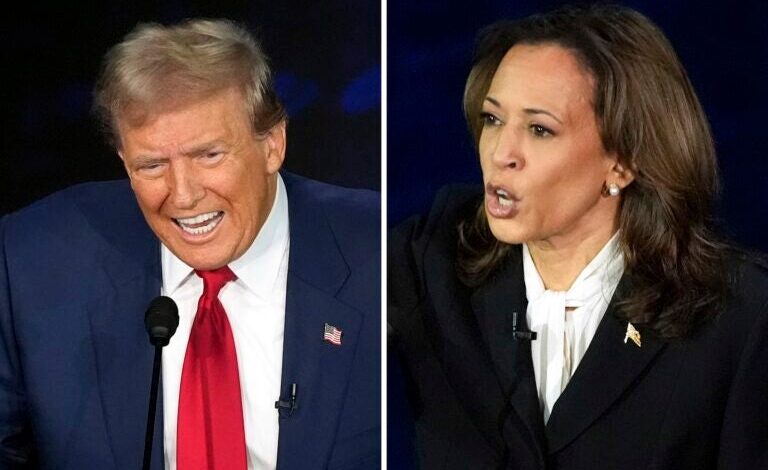Presidential politics could alter gambling expansion landscape in multiple states including Texas

Three weeks from today, US voters will elect a new president. Whoever the winner is, there’s likely to be a change in the gambling political landscape in multiple states.
Should Donald Trump become president, there are at least two states – Arkansas and Texas – that could be most affected when it comes to gambling expansions. And if Kamala Harris wins the election, there are another two states in which change could moderately affect the current gambling climate.
Trump could tap Texas governor Greg Abbott or lieutenant-governor Dan Patrick for his cabinet. Either one of those appointments is a potential game changer in the second-biggest state in the US. And in Arkansas, Governor Sarah Huckabee Sanders is a former Trump White House press secretary, so it seems possible that she would be on a short list for another appointment.
Harris’ running mate, Tim Walz, is the current governor of Minnesota. Walz has been supportive of an expansion of gambling and that likely wouldn’t change if his lieutenant governor follows him. And in California, should Harris tap attorney general Rob Bonta for an appointment, he would leave his position without offering an opinion on the legality of fantasy sports in the state.
Below is a look at each state that could be affected.
Arkansas
Sanders has not taken a public position on legalising igaming, but her father, Mike, a former Arkansas governor, has a long history of opposition. In 2014, he told Fox News: “Online gambling websites are preying on every kid with a smartphone or a tablet. This is frankly one of the most important topics that I don’t hear anybody talking about.” Fast-forward 10 years and his daughter is now governor and Saracen Casino executives have been campaigning to legalise igaming in the state.
Voters approved a gambling expansion in 2018. Arkansas now has live retail and digital sports betting and four locations were approved for additional land-based casinos.
Should Huckabee be tapped by the Trump administration, she would be replaced by sitting lieutenant governor Leslie Carol Rutledge. Prospects for the igaming lobby might not be any better with Rutledge in charge – as attorney-general, she previously rejected ballot language for casino initiatives five times.
California
Because the future of any kind of gambling in California lies in the hands of voters, if the Harris administration were to call on the governor, Gavin Newsom (unlikely), or the attorney-general, Rob Bonta, it appears little would change. There’s no direct path from Sacramento to Washington given the fairly distant relationship between Newsom and Harris. The two came up together politically in California, but on different routes. It’s entirely possible that Harris would pass over the governor of the largest US state.
A potentially more likely scenario would be that Harris would consider Bonta for the attorney-general’s position. Should that happen, he would leave unfinished business in California. His office is currently considering the legality of fantasy sports in California. The platforms are currently unregulated, so are neither legal nor explicitly illegal.
California’s tribes would prefer the status quo. At the Global Gaming Expo last week, California Nations Indian Gaming chairman James Siva said that Indian Country is lately feeling blessed on the legislative front. The state legislature in August passed a bill that will allow the tribes a chance to sue cardrooms. Newsom signed it a month later.
Minnesota
Should the Harris-Walz ticket win, Minnesota state law dictates that the sitting lieutenant-governor, Peggy Flanagan, would replace Walz. Flanagan would be the first female governor in the state and the first indigenous person anywhere in the US to become a governor. Walz supports legal digital sports betting in Minnesota. The tribes in Minnesota have exclusivity for Las Vegas-style gambling, and already have land-based casinos.
Flanagan hasn’t commented publicly on the issue, but given her heritage and political leanings, it would seem that she would support sports betting legislation that protects tribal sovereignty and allows those in Indian Country to thrive.
Like in Arkansas and Minnesota, should the Texas governor leave office before his term is up, the lieutenant governor would take his place. This presents an interesting situation in Texas where if either the governor, Greg Abbott, or the lieutenant-governor, Dan Patrick, end up in the Trump administration, the climate around gambling expansion could change dramatically.
Abbott, who is in his third term as governor, hasn’t been a proponent of gambling, but he recently hasn’t been a staunch opponent, either. As he campaigned in 2022, his stance started to ease, and, in February 2023, he told the media that he would consider signing a legal wagering bill, but would be more wary of a casino bill.
That stance is softer than Patrick’s. As lieutenant-governor, Patrick is also the senate president and as such has declined to call any gambling bills to a vote. While he has said if such a bill had enough support, he would call a vote, he is staunchly opposed to gambling. As recently as 2023, Patrick said, “We don’t waste time on bills without overwhelming GOP support.”
Texas lawmakers have been trying to pass an expansion of gambling for at least the last two sessions. The state legislature meets only in odd years, so opportunity in the Lone Star state is less frequent than in others. Should Trump win and appoint either Abbott or Patrick to a cabinet position, Texas could have a more meaningful shot at legalising some of form of gambling in 2025.


